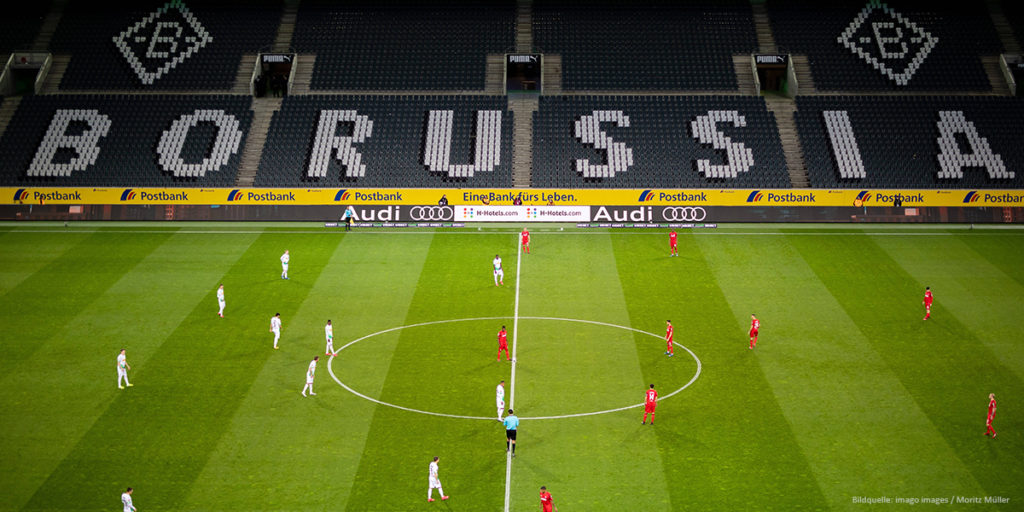The corona crisis not only poses new challenges for the sports industry worldwide. But what consequences will Covid-19 and its associated restrictions have on sport in the medium and long term? Mike Wragg, Global Head of Consulting & Research at Nielsen Sports, spoke with the German Press Agency about possible effects on sports sponsorship.

How would you describe the current situation caused by COVID-19 as rights holders and sponsors in sports business are facing it now?
“Rights holders and sponsors in sports business are probably facing their most difficult times all over the world, because events and leagues are currently frozen. As a result, rights holders’ sales are falling and sponsors are unable to maintain their usual brand exposure. Nevertheless, some business scenarios have been, and will continue to be, designed in order to be prepared when sports are allowed to take place again. Besides, there are already a lot of initiatives, especially digital ones, which help to stay in touch with fans.
The current situation is challenging for sponsors just as much. Their activities, which were supposed to take place now, have been planned a long time ago using all the necessary resources. Now activation strategies have to be adjusted or completely rearranged. In the next few weeks, all parties involved in sports will have to make forward-thinking decisions on whether and when to proceed with sports and leagues and also with their marketing.”
What changes do you expect to happen immediately after the crisis?
“We will face challenging times worldwide, and not just in the economy, the entire sports industry will also be affected. The value of sponsorship is determined by consumers’ behavior and interest. This will have a greater impact on sports and sponsorship than anything else. Brands have to think about how they will shape their marketing in the future. We at Nielsen Sports are realizing that COVID-19 is not completely changing the sponsorship landscape, but is accelerating developments and trends – especially in terms of greater fan engagement in the digital area. There are also some new emerging trends towards more social responsibility associated with sponsorships.”
You talk about accelerated changes – which areas will be most affected?
“This is the first time that sponsorship opportunities have been so severely restricted. Of course, many brands will still be able to reach their consumers. But I suspect that sponsorship as a marketing tool will be increasingly undermined when companies face more difficult economic challenges. Previous investments in sponsorship could therefore be temporarily suspended.”
“Taking up volunteer work and creating a social benefit is also a useful way of getting into close contact with the fans, independently of COVID-19.”
Mike Wragg, Global Head of Consulting & Research, Nielsen Sports
Are there also beneficiaries of it all?
“The corona crisis creates new opportunities for smaller sponsorship deals in the range of up to one million euros per year – especially by means of digital and virtual channels. This means opportunities for those rights holders and brands that have a local or regional connection and a respectively strong fan base. A good example is the digital sports hour of the basketball club Alba Berlin. It appeals to new target groups and creates additional value for partners and sponsors of the club.
Taking up volunteer work and creating a social benefit is also a useful way of getting into close contact with the fans, independently of COVID-19. In addition, gaming and esports will gain importance, both as separate industries with a connection to classic sports, because they are able to generate additional profits and interact with a younger target group.”
Do Olympic Games have to change as well?
“The Olympic Games face the enormous challenge of rescheduling the event by one year and reorganizing everything in the short time. Due to the restrictions imposed by COVID-19, the Olympics will face economic challenges just like any other platform. But there is no doubt that they will continue to be one of the major flagships of sports sponsorship in the future.”
Ghost games in football, ghost races in Formula 1 – what do sporting events without an audience mean for sponsors?
“Of course events without visitors would be something different. But we also need to rethink what we consider to be normalcy. Because I believe that this will also change. Virtual and digital solutions will expand in private and professional life. This is particularly evident due to many conversations with family members via video calls, video conferences with colleagues and customers or the numerous webinars. Bearing this in mind, I think that we will very quickly get used to the idea of large events without large crowds of visitors, without any loss of interest. This will open up new marketing opportunities for smaller sports and clubs.”
How can the crisis also be a recovery and restoration period for the sports and sponsorship industry?
“This process will take different courses on different sponsorship platforms. Those that are able to strengthen the bond with their fans will become even more valuable to partners and sponsors in the future. For those sports and clubs that are already struggling or failing to develop an authentic profile during the crisis, it will be much more difficult to emerge successfully from the Corona crisis.”
YOUR CONTACT


Mike Wragg
Global Head of Consulting & Research
Nielsen Sports
Mike.Wragg@nielsen.com
Jerome Quartey
Head of Marketing Europe
Nielsen Sports
Jerome.Quartey@nielsen.com